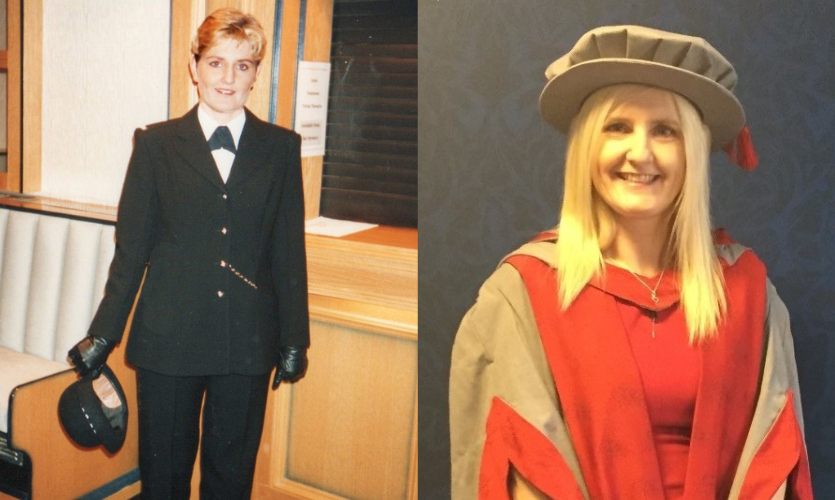Dr Carol Cox

Carol Cox has an unshakeable belief in the power of education.
A former police officer, she never strayed far from education, completing a MSc in Occupational Psychology on the job and soon after throwing herself fully into teaching. And while she describes the police service as a “brilliant career”, her real professional awakening came at the interface of profession and learning.
“As a part time mature student working for the police service, with two young children I began to realise the importance of education, and the crucial support that universities could provide. After gaining my master’s degree, and a PGCE in adult teaching, I left policing in 2008 and moved to a second career within the university sector.”
Sixteen years on, she heads up higher education’s most successful unit for higher skills in policing in England, the Liverpool Centre for Advanced Policing Studies (LCAPS), part of LJMU’s School of Justice Studies and a model nationally, praised by chief constables and officers alike.
Born in Birkenhead, Carol attended Woodchurch High School and Birkenhead Sixth Form College, before a short stint working with vulnerable children for the local authority.
She always wanted to help in the community and had an early dream of becoming a nurse she says but that wasn’t to be, and she studied psychology before joining Merseyside Police at 22.
“The police service was a brilliant career, I enjoyed supporting communities and working with fantastic teams, with over time my interest moving to socialisation of police officers, fairness and transparency.”
– Dr Carol Cox

With a PhD behind her and a growing conviction that successful policing needed to be underpinned by high levels of cultural and psychological awareness among officers, Carol took an opportunity to join LCAPS, which trains more than 1,000 officers a year in aspects of criminology, sociology, forensic and on-the-job education.
“Becoming the Head of LCAPS at this time was exciting as policing was moving away from in-house police training, with police officers needing an undergraduate degree to join the service. Having had the experience of working whilst studying for a degree, both as a nurse and police officer, I understood the importance of supporting students who are working whilst studying,” she says.
With community support and inclusivity among LJMU values, it is the only university to allow police apprentices to join the service without a level 3 qualification, to encourage local applicants with few formal qualifications.
“I’m really proud that in this way, we’ve transformed the lives of several police officers who have gained first class degrees but did not study beyond high school.” Carol recently won funding to work with Oscar Kilo (the national police wellbeing service), on world-leading research to monitor police wellbeing with wearable technology. This is helping local police and staff with their wellbeing, allowing officers to support our local communities.
Having straddled both the profession and its ‘educator’, Carol understands the true meaning of local community and partnerships – a feature of LJMU’s ethos for 200 years.
“The work myself and others do at LJMU will ensure a generation of students will have a lasting impact in the city region and beyond and that’s worth something, I hope.”
